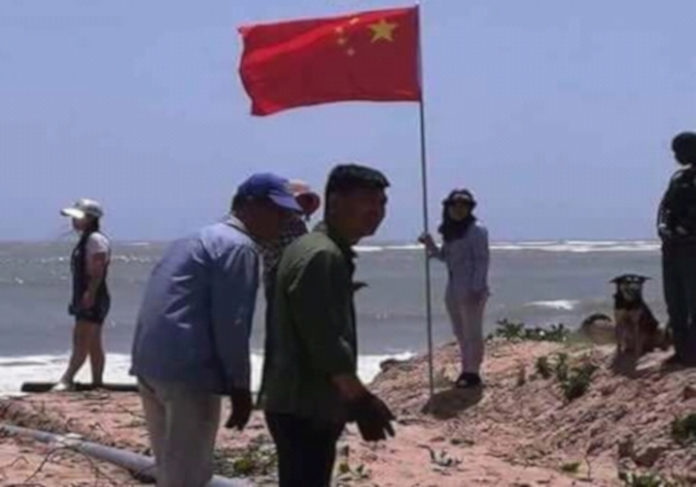By Madiba Singhateh
Lamin BJ Samateh a programme officer at the environment legislative unit of National Environmental Agency has given assurance of the safety of the fishmeal factories.
He pointed out that they have not found on their reports parameters that are very high to cause serious environment problems, noting that there is no environment industry that is 100% environmentally friendly. Mr Samateh made such assurance in an interview with Foroyaa at the NEA headquarters at Kanifing.
According to Mr. Samateh before any factory is opened in the country the site has to be visited first to assess the bio-physical environment of the area.
He said the law dictates if you are doing a project in the country that has a potential to cause environment impacts, those projects are supposed to be subjected to environment assessment test.
Mr. Samateh said the issue of waste water came up during the screening of the project which is class B project.
He said the difference between class A and B projects is that class A projects require detailed environmental studies while B projects do not require detailed environmental studies, because class B has environment impacts which are not as significant as class A projects.
Mr.Samateh said what the fishmeal factories need is an environmental management plan based on the peculiarity of their projects.
He said in the reports, the factory submit issues of waste water management was adequately dealt with.
He said until 2015 fish meal processing plants were not industries in The Gambia and the first fish meal plant was Golden Lead in 2015 followed by Sanyang a year later.
He said because of the rise of fishmeal plants in the country the agency has to go to Mauritania to do the study there because there are a lot of fishmeal factories there.
He added that the product from the factory is used to produce poultry feeds or fish feeds for aquaculture.
He said it is impossible for those people to feed the fish with chemicals that ended up at the dinner table.
He said the waste water has a lot of organic matter in it because of the presence of blood since the fish are caught in mass.
He said the process involved is boiling the fish and separating the water and oil.
Mr. Samateh said the fish is boiled at a high temperature and the water that comes out is normally hot, adding that they cannot just discharge the water at that point; so the factory has a container where it will be kept before it is discharged.
He said the agency wants them to come with a processing plant so that the waste water is treated before it is discharged.
He said at some point, Nissim started operation without a water treatment plant, leading to the agency sending a notice for them to stop until the plant is ready.
He said the waste water could be useful because it contains blood nutrients and part of fish which is decomposed, and this can be lucrative in terms of soil nutrients which can be implemented in the farmlands.
He said for that to be implemented in farms, it needs research.
He said when the treatment plant was ready the agency took the samples to Water Resources Ministry whom the agency signed an MOU with. He said that the Ministry has a water quality analysis laboratory and are mandated by virtue of provision of the Environment Quality Standard Regulation to do water analysis tests for them.
He said they also took the samples to Dakar to a renowned laboratory that is accredited to do analysis, and they have not found on the reports parameters that are very high to cause serious environmental problems.
He reiterated that they did not find any chemicals that will raise eyebrows to the public health.
He said at the discharging point of the water, it attracts other fish to come and feed.
He added that when golden lead were doing secret discharge without their notice, the outlet of the pipe is where fishermen fished because the fish will come to feed on the blood and some of the solid particles being discharged.
He said it could have been worrisome if there were traces of those chemicals in the water but that is not the case.
He added that as an agency, they have obligation not only to issue environmental approval and stop at that, they do unannounced monitoring too.
He said they sometimes take samples at the discharging points in order to see if there is any compliance.
He said people need to know their limitation if they have anything let them give them proofs.
Samateh asserted that industrialization comes with cost to the environment, noting that there is no environmental industry that is 100% environmentally friendly.
He said what they have done is to come up with environmental laws to deal with some of the negative impacts.
In conclusion, he acknowledged that the agency has shortcomings in that they can’t be everywhere.
He invited anyone who sees anything abnormal to report it to the agency.



















